Greece debt crisis: New bailout deal agreed at summit of Euro leaders after all-night talks
UPDATE: THE President of the European Council says a unanimous agreement on a Greek bailout deal has been reached after a marathon 17 hours of talks.
THE president of the European Union Council says a unanimous verdict has been reached on a Greek bailout after 17 hours of discussions.
EU President Donald Tusk said that a bailout programme was “all ready to go” for Greece, “with serious reforms and financial support”.
European Commission head Jean-Claude Juncker said “ here will not be a ‘Grexit’”.
Belgian PM Charles Michel tweeted the news by posting one word: “Agreement”.
The news comes after Eurozone leaders worked through the night to break the deadlock in the Greece debt crisis talks after slapping the cash-strapped nation with a brutal ultimatum for a desperately needed bailout package.
Agreement
— Charles Michel (@CharlesMichel) July 13, 2015The leaders of Greece, Germany, France and the EU hadeproposed a “compromise” on a bailout deal for Athens at all-night talks.
Greek Prime Minister Alexis Tsipras, German Chancellor Angela Merkel, French President Francois Hollande and EU president Donald Tusk hammered out the proposal on the sidelines of an emergency summit of the 19 countries that use the euro, the source said.
“There is a four-way deal which will now be put to the 19,” said the source, who spoke on condition of anonymity.
At 4am local Brussels time, Tusk’s spokesman Preben Aamann tweeted that the EU leader had reconvened the full summit after a break of several hours “with (a) compromise proposal”, but gave no further details.
Tusk @eucopresident expects to reconvene #EuroSummit in 10 minutes on #Greece with compromise proposal
— Preben Aamann (@PrebenEUspox) July 13, 2015But a Greek government official said there were still issues to resolve on the proposal for far-reaching economic reforms by Athens in exchange for a third financial rescue programme since 2010.
“We don’t have a deal because two big issues remain open — the IMF role and the Luxembourg 50 billion euro fund,” the Greek official said on condition of anonymity.
Eurozone proposals insist on the International Monetary Fund having a part in any future bailout, and call for Greece to park assets of up to 50 billion euros (AU$74 billion) for privatisation.
“The rest is okay but not very okay. With a gun to your head, you would say okay too,” the source said.
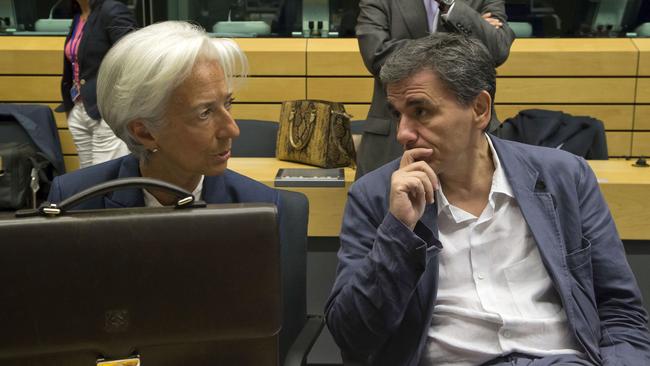
The crisis meeting came as a catastrophic Greek exit from the euro currency loomed closer.
Germany has been aggressively pushing for a Greek “time out” from the euro if leftist Prime Minister Alexis Tsipras fails to agree to tough take-it-or-leave-it terms for a three-year rescue plan.
Greece said the plans were “very bad”, but with its banks set to run dry in days it looked to have little choice but to bow to reform demands that effectively rob Athens of control of much its finances.
In a draft document sent to eurozone leaders after two days of frantic crisis talks, Greece would need to allow creditors to create a base inside Athens — a move it has resisted until now.
Sky News reports that the embattled country has agreed to carry out “ambitious” reform with tough conditions on labour and pensions, VAT and taxes, and measures on privatisation, in order to secure its third bailout package since 2010.
The radical reforms would need to be rushed through parliament and implemented by Wednesday, Finnish Finance Minister Alex Stubb said.
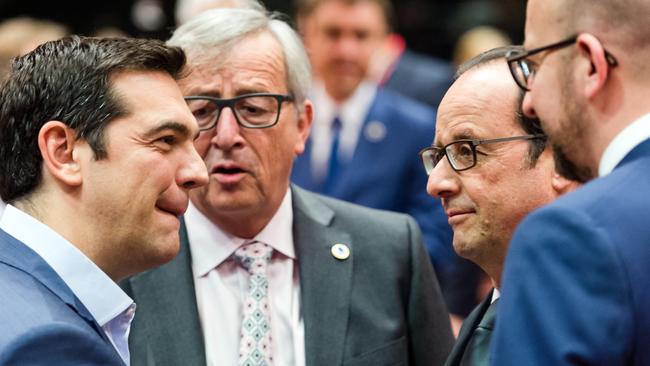
The four-page document drafted on Sunday states that Greece’s bailout needs could amount to between 82 billion and 86 billion euros ($122 to $128 billion).
“In case no agreement could be reached, Greece should be offered swift negotiations on a time-out from the euro area, with possible debt restructuring,” the draft document said.
It wasn’t entirely clear what a temporary exit would entail or how long this would be, but the threat put intense pressure on Tsipras to swallow politically unpalatable austerity measures.
Here’s the full 4pg eurogroup document on #Greece, inc “time-outâ€, total amt needed (€82-6bn) & reform proposals pic.twitter.com/sKUpbykcBX
— Ed Conway (@EdConwaySky) July 12, 2015A European source told AFP that Germany had drawn up plans in an “internal paper” for a temporary five-year Greek exit from the euro if it failed to improve its bailout proposals.
The draft text also took note of “the possible program financing needs of between EUR 82 and 86bn, as assessed by the institutions”.
The draft document was presented to the leaders of 19 eurozone countries who met in Brussels on Sunday to discuss Greece’s request for 53.5 euros over three years.
Tusk @eucopresident has suspended #EuroSummit on #Greece for bilateral meetings in search of compromise pic.twitter.com/7xE1j89JZg
— Preben Aamann (@PrebenEUspox) July 12, 2015France and Germany divided
On the frontline of the Greek debt crisis, the Franco-German partnership is in open conflict with Chancellor Angela Merkel and President Francois Hollande deeply divided over how far to go to keep Greece in the eurozone.
While Germany clearly envisages the possibility of a “Grexit” from the single currency, France wants to avoid it at all costs.
“There will be no agreement at any price,” Merkel said Sunday at yet another eurozone summit, again taking a hard line in the troubled bailout talks between Greece and the other eurozone states.
Merkel pointed to a broad lack of trust in the hard-left government in Athens.
A little later, Hollande dismissed a temporary “Grexit” plan mulled by Germany and presented as an option in a draft document compiled by eurozone finance ministers.
He reiterated that France would do “everything” to reach a deal to keep Greece in the euro.
The tensions were underscored when EU President Donald Tusk halted the summit midway for three-way talks between Tsipras, Merkel and French President Francois Hollande.
Moscow offers Greece an energy deal
As eurozone leaders work to thrash out a deal, Vladimir Putin is considering offering an energy deal to Greece to help its lagging economy.
Russia’s Energy Minister Aleksandr Novak said the country wants to help Greek recovery by expanding economic cooperation.
“Russia intends to support the recovery of the Greek economy by increasing cooperation in the energy sector. Therefore we are looking into options for facilitating direct energy supplies to Greece in the near future,” he said.
European leaders respond to emergency talks
German Chancellor Angela Merkel warned that a Greek bailout deal will not come “at any price”, adding “the most important currency has been lost: that is trust and reliability.”
She said talks would be “tough,” adding that in any deal reached “the advantages outweigh the disadvantages both for the future of Greece and the eurozone as a whole and the principles of our cooperation.”
Martin Schulz, the head of the European Parliament, said Europe was “at a crossroads”.
“Are we going to move forward with a spirit of unity or are we going to start falling apart? This is what is really on the agenda,” he said, according to the UK Telegraph.
“We are very rarely in the sort of situation where the time allowed for a decision relates not just to one country but to the eurozone and the whole of Europe — which will be affected by any decision. There must be a decision and I hope it will be a constructive decision. An overwhelming majority are keen for Greece to remain in the eurozone … but people have different views.
“Some subscribe to the view that Greece should leave the eurozone and don’t see risk attached to Grexit. A broader number are of the opposite view that Grexit is not an option. I can’t remember in all my years a situation like this. It’s not any decision. It’s really about the European Union.
“If the EU is going to be a credible force it has to demonstrate a capacity to solve its own problems. And [doing this] will be important for its prestige on the international stage. We’re talking about the fate of millions of people. So there is a responsibility on both sides and on the other partners in the eurozone.”
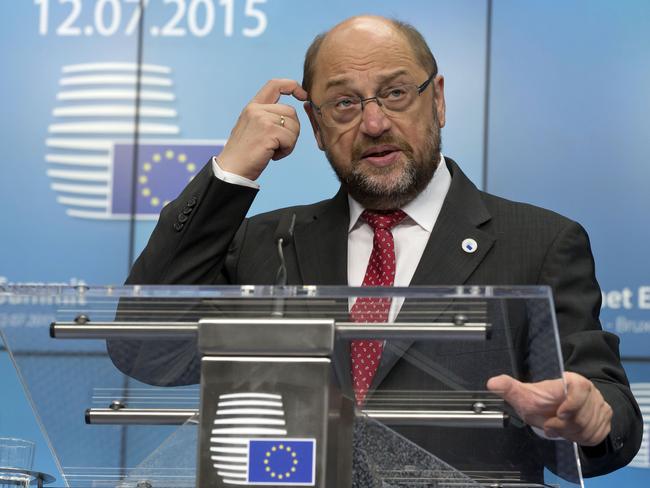
Jean-Claude Juncker, the head of the European Union’s executive branch, said he would “fight until the very last millisecond” for a deal that keeps Greece in the euro.
French President Francois Hollande said he’s going to do everything that he can to keep Greece in the euro, adding that it wasn’t just Greece’s future that’s at stake.
Hollande also sought to douse any talk that a temporary Greek exit from the eurozone is possible. Greece is either in or out, he said. The latter would be a retreat for Europe, said Hollande.
Italian Finance Minister Pier Carlo Padoan said Greece’s European creditors just don’t trust the Greek government enough to do what it says it will do on the economic reform front.
“We continue to work to establish the conditions to start negotiations, which is the real target,” Padoan said as he arrived for talks. “It is not about closing a deal.”
“Let’s face it, the main obstacle to moving forward is lack of trust,” Padoan added.
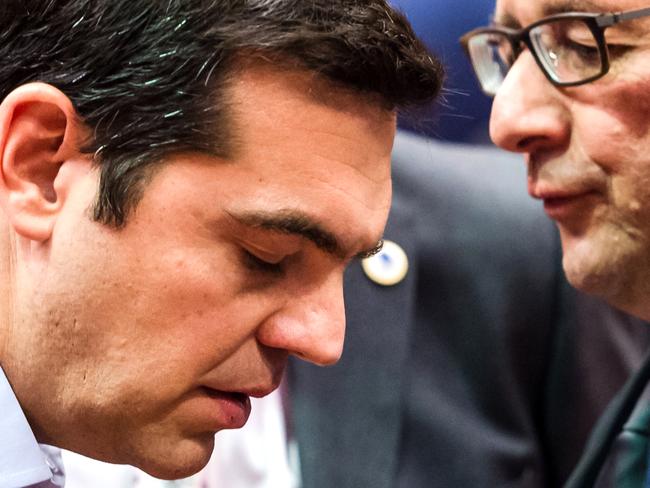
Failed talks ahead of Sunday’s emergency summit
Sunday’s meeting came after divided eurozone finance ministers held “very difficult” talks on Greece late into the night on Friday.
About eight hours of talks failed to make a breakthrough, with eurozone nations citing a lack of trust in Greece’s radical Syriza government implementing the austerity measures promised in exchange for a third bailout.
Greece’s Prime Minister Alexis Tsipras has offered to implement tax rises and spending cuts in return for a financial lifeline of 53.5 billion euros to stave off bankruptcy and the possibility of crashing out of the euro.
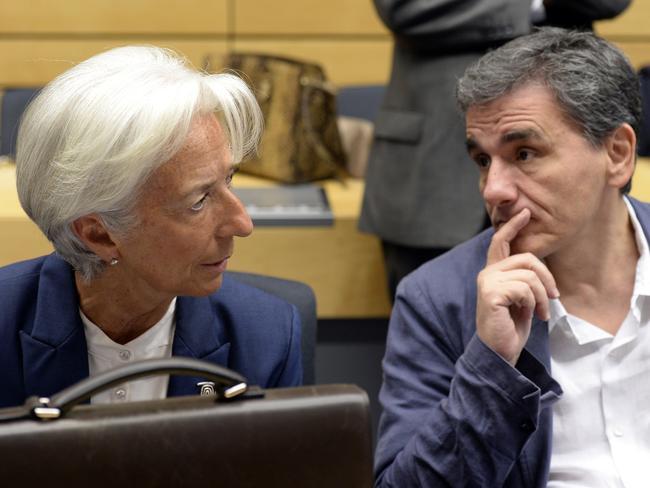
Eurogroup president Jeroen Dijsselbloem said: “We had an in-depth discussion on Greek proposals. The issue of credibility and trust was discussed and also, of course, the financial issues involved.”
The Dutch finance minister added: “It is still very difficult, but work is still in progress.”
In Finland, there were reports that the coalition government was refusing to back further assistance for Greece.
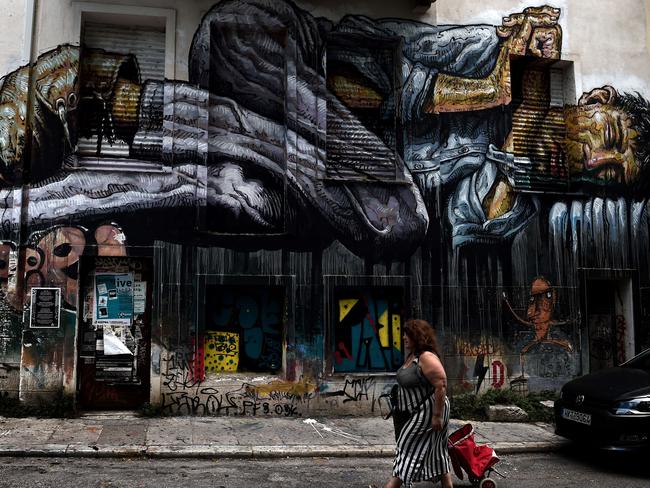
On Saturday, reports suggested that Germany was pushing the idea of a temporary five-year long Greek exit — “Grexit” — from the eurozone.
Theodoros Mihopoulos, who heads Mr Tsipras’ office, said the report in Germany’s Frankfurter Allgemeine Zeitung newspaper “is completely denied”.
Greece’s banks, according to many accounts, have barely enough cash in their vaults to see the country through the week.
Greece’s banks have been shuttered for the best part of two weeks and daily withdrawals from ATMs have been limited to a paltry 60 euros ($90). The economy is in a free fall and the country faces big debt repayments in coming weeks.
Greece has already defaulted on a 1.6 billion euro payment to the International Monetary Fund last month.
It has another 4.2 billion-euro payment on July 20 due to the European Central Bank.
Greece has asked Europe’s bailout fund for a 53.5 billion-euro three-year financial package but many EU officials believe that won’t be enough.



